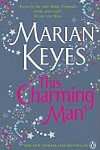Laura Barnett – The Versions Of Us
Posted 11th March 2015
Category: Reviews Genres: 2010s, Domestic, Historical, Philosophy, Social
3 Comments

The eternal ‘what if?…’
Publisher: Weidenfeld & Nicolson (Orion Books)
Pages: 442
Type: Fiction
Age: Adult
ISBN: 978-1-474-60016-3
First Published: 4th June 2015
Date Reviewed: 10th March 2015
Rating: 4.5/5
Eva takes her bicycle; she’s on her way to her university tutorial. Whether it’s a nail in her path, a dog she must swerve to avoid, or a dog she tries to move around but cannot, this day is accompanied by the presence of a boy she could meet. We follow three possible futures: one in which Jim and Eva meet and go for a drink, one in which they don’t, and one in which they do but then continue their day apart.
The Versions Of Us is a fine novel that takes its time to reveal its point. A decidedly average, run of the mill, set of lives, you will be forgiven for the times you wonder whether you should keep reading and will be rewarded at the end with a small yet very important thought. Indeed it’s not a lesson or message, as such, that Barnett wants to leave us with, it’s a notion. A notion and a reminder that whilst we can have regrets, few will ever have a perfect life no matter which choices they make.
Barnett favours a style of writing that is simple on the surface. Stripped of embellishments, the prose often reads as a bullet-pointed list, yet it is nevertheless detailed and literary. It’s the sort of writing that may take a few pages to get used to but urges you to read on. Yes, of course, every author wants you to keep reading, to keep turning those pages, but there’s a subtle difference here that is hard to pinpoint exactly. “Read,” Barnett seems to be saying, “not because I think you should love my book but because I know what you wonder about and I think I’ve found a way to help us all.”
It would be silly to deny that a reader will never be confused by this novel. Barnett doesn’t set her ‘versions’ out to be too different to each other – whilst there are differences, the basis is the same – and this was obviously a decision made to match the aim of the book. She’s not showing how wildly different our lives could have been if we’d said ‘yes’ to that man at the bar, or if we’d said ‘no’, or if we’d danced with the girl at the party or turned her down – she’s showing that our regrets shouldn’t have so much of a hold on our lives. She reminds us that yes, it could have been awesome, but it might have been mundane or even bad. Too often we look through rose-tinted glasses.
So you’re going to muddle these versions as you read, and that’s okay; it’s expected. Barnett ensures you know everything that’s important to know – when the versions match up (for example, an event that was always going to happen because it’s to be hosted by a third party) she includes the most pertinent details in at least one version so that you’re always up to speed. If there’s anything to gripe about, it’s the oft-repetitive nature of the book – Barnett is dedicated to keeping the stories in the same time frame, never jumping ahead. However the repetition itself is a good reminder that some things are out of our control. Obviously more time is spent on some versions than others at any given time, and the version that deals with Jim and Eva together at Cambridge often makes way for the versions in which they are apart so that both sides can have their say.
Barnett never suggests there is a right way to live; in keeping with the notion of possibilities she shows that there will be flaws and unhappy moments in even the best lives. She delves into the fact that something can look amazing on the surface whilst being fraught with difficulties behind closed doors. One good choice is unlikely to set the tone for the entirety of your life.
And this is why the story itself is average. Jim and Eva’s three versions are meant to represent lives that you can relate to. There may be the riches and fame, but they’re accompanied by the everyday, and likewise there are silver linings to the dark days. There is Cambridge and then your standard art college. There is the well-known author and the low-wage copy-editor.
Whether you prefer one version to the others is entirely up to you. Barnett doesn’t seem to have a favourite; she is simply studying a concept. It’s likely you will change your thoughts as you continue, as you see the various good things that can happen when the assumed best route is not taken.
The Versions Of Us is super. It takes the film it is compared to, Sliding Doors, and provides what that story lacked, showing that it’s not just the conclusions that may be humbling but the middle part, too. It’s confusing and you may want to put it down sometimes, but doesn’t that just echo life?
I received this book for review from the publisher.
Related Books
None yet.
March 11, 2015, 10:52 pm
I love this kind of story! It sounds a little like Life after Life (but less dire), or did you ever read that play Constellations? It does something similar, and it’s absolutely marvelous, though in the end, heartbreaking. It’s a good play. And this book sounds excellent!
April 28, 2015, 6:26 pm
Makes me think of the movie Sliding Doors with Gwyneth Paltrow, which I really like and re-watch occasionally.
3 Comments
Comments closed























March 11, 2015, 2:25 am
Such an interesting premise! I can see why the three different versions are all just average stories – it would probably be really quite confusing if they all went off on wild tangents.